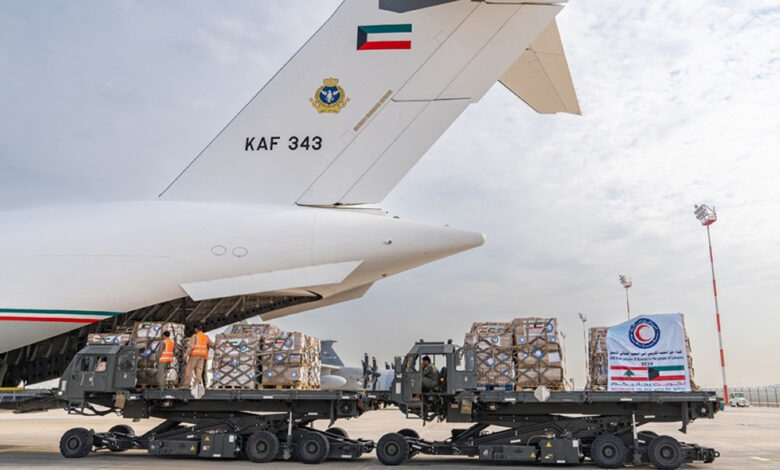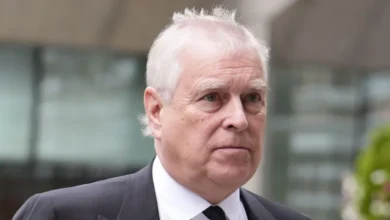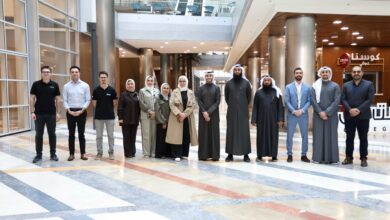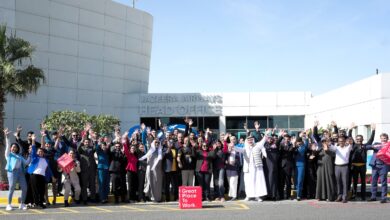Kuwait a generous, principled humanitarian supporter
Humanitarianism, and its more tangible manifest, humanitarian aid, is vital for saving lives, reducing suffering, and promoting human dignity during natural calamities, man-made crises, and global health emergencies. Humanitarian support provides urgent relief and assists in long-term recovery, empowering communities to survive, recover, rebuild and become more resilient.

THE TIMES KUWAIT REPORT
Humanitarianism, and its more tangible manifest, humanitarian aid, is vital for saving lives, reducing suffering, and promoting human dignity during natural calamities, man-made crises, and global health emergencies. Humanitarian support provides urgent relief and assists in long-term recovery, empowering communities to survive, recover, rebuild and become more resilient.
In recent years, increasing frequency, severity, and complexity of global humanitarian emergencies, has led to a surge in number of people affected. The Office for the Coordination of Humanitarian Affairs (OCHA), the United Nations entity that works to coalesce the international community to address humanitarian crises, has appealed for US$45 billion to support the more than 300 million people needing life-saving aid in 2025.
Sadly, more than halfway through the year, less than 17 percent of the amount required has been received. The fall in funding at a time of rising humanitarian need has been precipitated by a sluggish economy in many donor nations, as well as from an increasingly politicized humanitarian space. The rise in restrictive political and administrative policies and actions have hampered the free flow of aid and constrained humanitarian operations.
In his foreword to the ‘Global Humanitarian Overview’ (GHO)—an overarching report on the world’s humanitarian landscape published annually by the OCHA—the Under-Secretary-General for Humanitarian Affairs and Emergency Relief Coordinator, Tom Fletcher noted that in the first five months of 2025, multiple major donors reduced funding, triggering a seismic contraction in global humanitarian action.
The United States of America—which funded 45 percent of the global humanitarian appeal in 2024, announced a suspension and subsequent termination of many humanitarian contracts, with sudden and widespread consequences around the globe.
This came on top of reductions announced or instituted by other major donors, including Germany and the United Kingdom, said Fletcher in his foreword.
Humanitarian aid, which was once defined solely as providing immediate relief to victims and survivors of crises, has increasingly become recognized as a means to further a state’s strategic and foreign-policy interests, including promoting democracy, human rights, economic development, and even nation-building. But this politicalization of human aid comes at a cost in human life and suffering.
The funding shortfall limits the ability of humanitarian agencies to freely and effectively perform their crucial relief and life-saving activities. It restricts aid operations within the narrow confines that comply with the interests and partisan agendas of powerful states, abandoning millions of vulnerable people without the resources they desperately need to survive.
Amid these economic and geo-political impediments to humanitarian aid, it is heartening that Kuwait has continued to be a beacon of solace delivering generous financial and material support to relief operations worldwide. Kuwait has always been a strong advocate for multilateral humanitarian action and has partnered with various United Nations entities and other international organizations in responding to crises worldwide.
In a statement issued on the occasion of this year’s World Humanitarian Day, Minister of Social Affairs and Family and Childhood Affairs Dr. Amthal Al-Huwailah noted that the ethos of providing humanitarian support to people affected by disasters and crises worldwide is embodied in the actions of Kuwait’s official humanitarian institutions, its many charitable societies, and various endowments.
She added that the consistent and generous donations made by Kuwaiti society in response to global humanitarian crises, are tangible evidence of its commitment to humanitarian values, and reflect Kuwait’s empathy and generosity towards people affected by crises. Lauding Kuwait’s humanitarian workers for their time and efforts in aid operations, she said they represented the country’s firm commitment to its humanitarian responsibility and its role in promoting international solidarity.
Kuwait’s principled, purposeful, and transparent humanitarian efforts have been recognized and appreciated by the international community. In a symbolic gesture acknowledging Kuwait’s firm stance in this field, this year’s edition of GHO 2025, was held concurrently at the OCHA headquarters in Geneva, Switzerland and in Kuwait in partnership with the Ministry of Foreign Affairs.
The launch event in Kuwait also included a specific focus on ‘Humanitarian Diplomacy’, in recognition of Kuwait’s significant contributions in this domain.
Kuwait has a longstanding commitment to humanitarian diplomacy, aimed at mitigating the impacts of wars and conflicts through cooperation, dialogue and diplomacy that promotes peace and inclusive, effective humanitarian action,
Kuwait continues to demonstrate its commitment to humanitarian work through ongoing initiatives that provide aid directly to afflicted populations, and by facilitating UN relief operations that ensure assistance reaches beneficiaries in a timely and efficient manner. The country has over the decades participated, hosted and contributed hundreds of millions of dinars at international conferences that focused on raising funds and outlining strategies for relief, reconstruction, and rehabilitation work in conflict-ravaged places such as Iraq, Syria, Yemen, and Sudan.
Aside from its sustained financial contributions to humanitarian aid through the UN Relief and Work Agency (UNRWA) for Palestine, and the UN Refugee Agency for (UNHCR) for Syrian, Rohingya and other refugees, Kuwait has also been among the first to respond with financial support to global health crises like COVID-19, Ebola, AIDS and Malaria, in coordination with the World Health Organization.
Kuwait is currently streamlining and providing a more structured framework to its humanitarian and charitable efforts. In late June this year, a meeting of the Humanitarian and Charitable Work Regulatory Committee, chaired by First Deputy Prime Minister and Minister of Interior Sheikh Fahad Yousef Saud Al-Sabah, approved the resumption of donations and implementation of charitable projects both domestically and abroad, in line with new regulation and guidelines set by Ministry of Social Affairs.
The new regulations strengthen the activities of charitable organizations while ensuring alignment with international governance and transparency standards. The new regulations also allow donors to track the disbursement of their contributions, reinforcing public trust and accountability in the sector, as well as guarantees that intended aid reaches those in genuine need, and that charitable operations function within a structured legal framework.
Kuwait’s significant contributions and humanitarian leadership is recognized by the international community. In 2014, the United Nations designated Kuwait as a Global Humanitarian Center and the late Amir Sheikh Sabah Al-Ahmad Al-Jaber Al-Sabah.as a Humanitarian Leader, for his personal dedication and advocacy for humanitarian causes. The country’s global recognition stemmed from its consistent and substantial support for humanitarian efforts globally, including hosting international pledging conferences and providing financial aid to various crises.
Presenting the humanitarian credentials to the late Amir, the then United Nations Secretary-General Ban Ki-moon stated: “Kuwait’s exemplary humanitarian leadership and funding has saved tens of thousands of lives, and galvanized others to participate in coordinated international action. He added, “Kuwait may be a small country in size but she has a big, broad, and compassionate heart. At a time when so many of our appeals are under-funded, it is good to know we can count on Kuwait’s generosity.”
The OCHA underlines in its GHO 2025 that humanitarian support is not just doing what is right, but also doing what is smart—it is an investment in peace and stability. It mitigates and helps counteract the global threats arising from poverty, instability and inefficient governance, which often catalyze crises and conflicts, and exacerbate the effects of natural calamities, forcing people to flee or migrate from their lands.
Humanitarian action is also not charity, it is an act of solidarity with the suffering of another human being. Being humanitarian is a reflection of who we are, it mirrors our compassion and conviction that we are stronger and more resilient as one human family. Humanitarianism is grounded in our shared sense of humanity and the belief that all human lives have equal value.
Follow The Times Kuwait on X, Instagram and Facebook for the latest news updates












